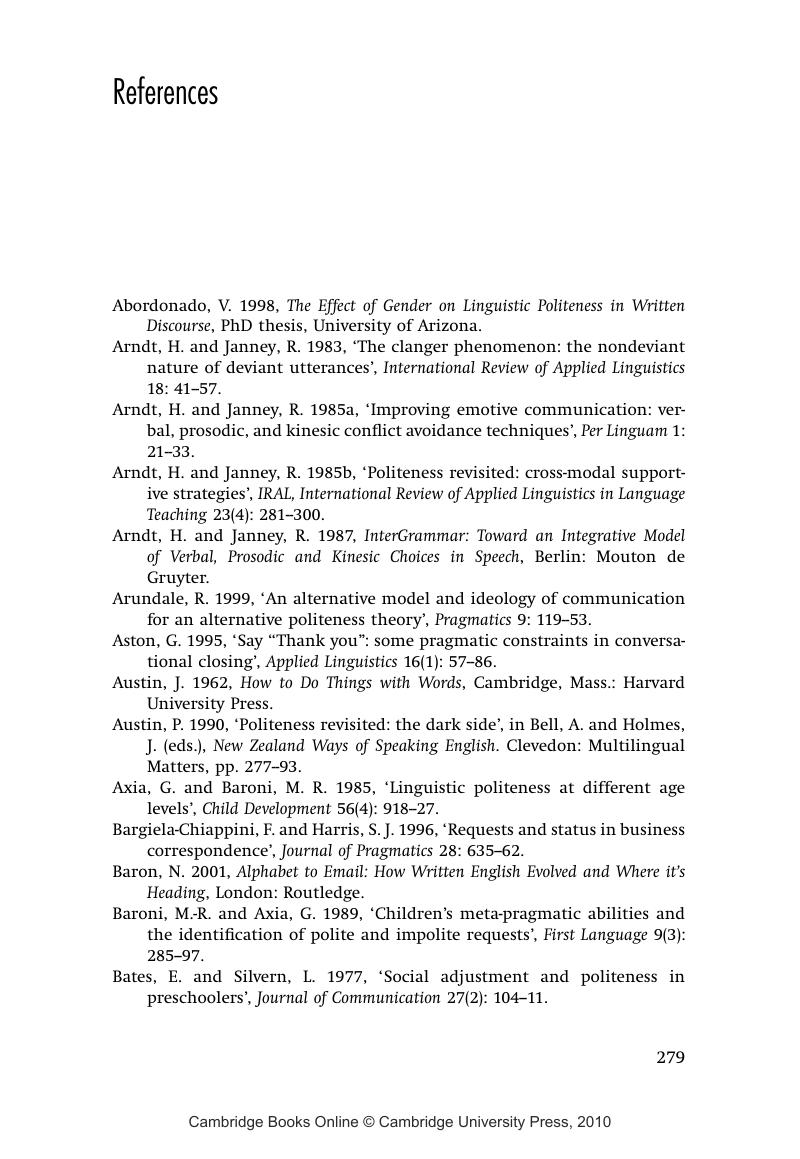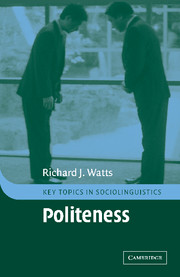Book contents
- Frontmatter
- Contents
- Preface
- 1 Introducing linguistic politeness
- 2 Politeness through time and across cultures
- 3 Modelling linguistic politeness (I)
- 4 Modelling linguistic politeness (II): Brown and Levinson and their critics
- 5 Facework and linguistic politeness
- 6 A social model of politeness
- 7 Structures of linguistic politeness
- 8 Relevance Theory and concepts of power
- 9 Politic behaviour and politeness in discourse
- 10 Politic behaviour and politeness within a theory of social practice
- Notes
- Glossary of terms
- References
- Index
- References
References
Published online by Cambridge University Press: 24 November 2009
- Frontmatter
- Contents
- Preface
- 1 Introducing linguistic politeness
- 2 Politeness through time and across cultures
- 3 Modelling linguistic politeness (I)
- 4 Modelling linguistic politeness (II): Brown and Levinson and their critics
- 5 Facework and linguistic politeness
- 6 A social model of politeness
- 7 Structures of linguistic politeness
- 8 Relevance Theory and concepts of power
- 9 Politic behaviour and politeness in discourse
- 10 Politic behaviour and politeness within a theory of social practice
- Notes
- Glossary of terms
- References
- Index
- References
Summary

- Type
- Chapter
- Information
- Politeness , pp. 279 - 298Publisher: Cambridge University PressPrint publication year: 2003

